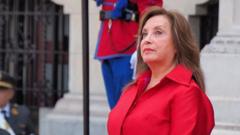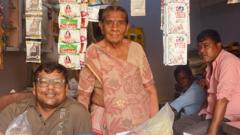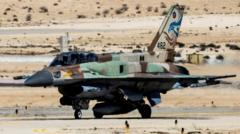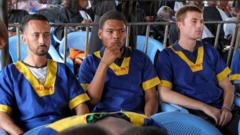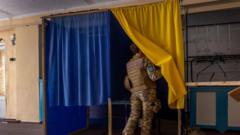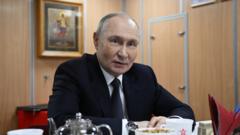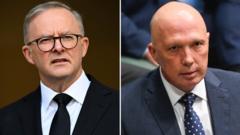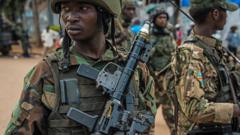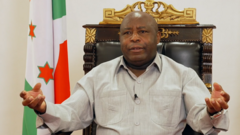Joseph Kabila's return to Goma coincides with a ban on his party and accusations of high treason.
**DR Congo Ex-President's Party Banned Amid Rebel Allegations**
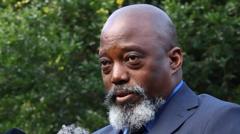
**DR Congo Ex-President's Party Banned Amid Rebel Allegations**
The government accuses Joseph Kabila's party of having ties to the M23 rebel group.
The Democratic Republic of Congo has officially banned the political party of former president Joseph Kabila, citing alleged connections to the M23 rebel group, which has made significant territorial gains in eastern Congo this year. This decision follows Kabila's return to the country after two years in South Africa, with reports indicating he has arrived in Goma, a city currently controlled by the Rwandan-backed M23.
Kabila, who assumed presidency at a young age following his father's assassination in 2001, has denied any involvement with the insurgent group. The Interior Ministry’s announcement detailed the ban on all activities of his party, the PPRD, highlighting its "ambiguous attitude" toward M23's control over Congolese territories. The statement went further to accuse Kabila of high treason due to his choice to return to Goma, where he is reportedly under protection from what the government terms an "enemy."
The PPRD has yet to release a statement on the ban or the accusations, while Kabila himself has not publicly confirmed his return, despite mentioning earlier this month his intention to come back to the Congo. Notably, his spokesperson recently indicated that Kabila plans to address the nation soon.
Conflicting narratives surrounding Kabila’s current location persist; senior officials within the PPRD claim he is not in Goma, while M23 representatives remain noncommittal about his presence, suggesting no issue with Kabila being in the area.
Kabila's troubled presidential tenure was marked by controversy, including allegations surrounding electoral integrity and power-sharing agreements with current President Félix Tshisekedi. His exit from the political scene was followed by intense scrutiny over his decision to study abroad, and the timeline of his return sparks questions about his political ambitions.
In statements released upon his return, Kabila has expressed his desire to contribute to resolving the ongoing national and security crises, a statement that resonates with both historical and political significance in the region. Political analysts suggest that Kabila's connections to the M23 and figures like Corneille Nangaa—who previously served under his administration—may contribute to the complex dynamics at play in Congo’s political landscape.
Kabila, who assumed presidency at a young age following his father's assassination in 2001, has denied any involvement with the insurgent group. The Interior Ministry’s announcement detailed the ban on all activities of his party, the PPRD, highlighting its "ambiguous attitude" toward M23's control over Congolese territories. The statement went further to accuse Kabila of high treason due to his choice to return to Goma, where he is reportedly under protection from what the government terms an "enemy."
The PPRD has yet to release a statement on the ban or the accusations, while Kabila himself has not publicly confirmed his return, despite mentioning earlier this month his intention to come back to the Congo. Notably, his spokesperson recently indicated that Kabila plans to address the nation soon.
Conflicting narratives surrounding Kabila’s current location persist; senior officials within the PPRD claim he is not in Goma, while M23 representatives remain noncommittal about his presence, suggesting no issue with Kabila being in the area.
Kabila's troubled presidential tenure was marked by controversy, including allegations surrounding electoral integrity and power-sharing agreements with current President Félix Tshisekedi. His exit from the political scene was followed by intense scrutiny over his decision to study abroad, and the timeline of his return sparks questions about his political ambitions.
In statements released upon his return, Kabila has expressed his desire to contribute to resolving the ongoing national and security crises, a statement that resonates with both historical and political significance in the region. Political analysts suggest that Kabila's connections to the M23 and figures like Corneille Nangaa—who previously served under his administration—may contribute to the complex dynamics at play in Congo’s political landscape.




